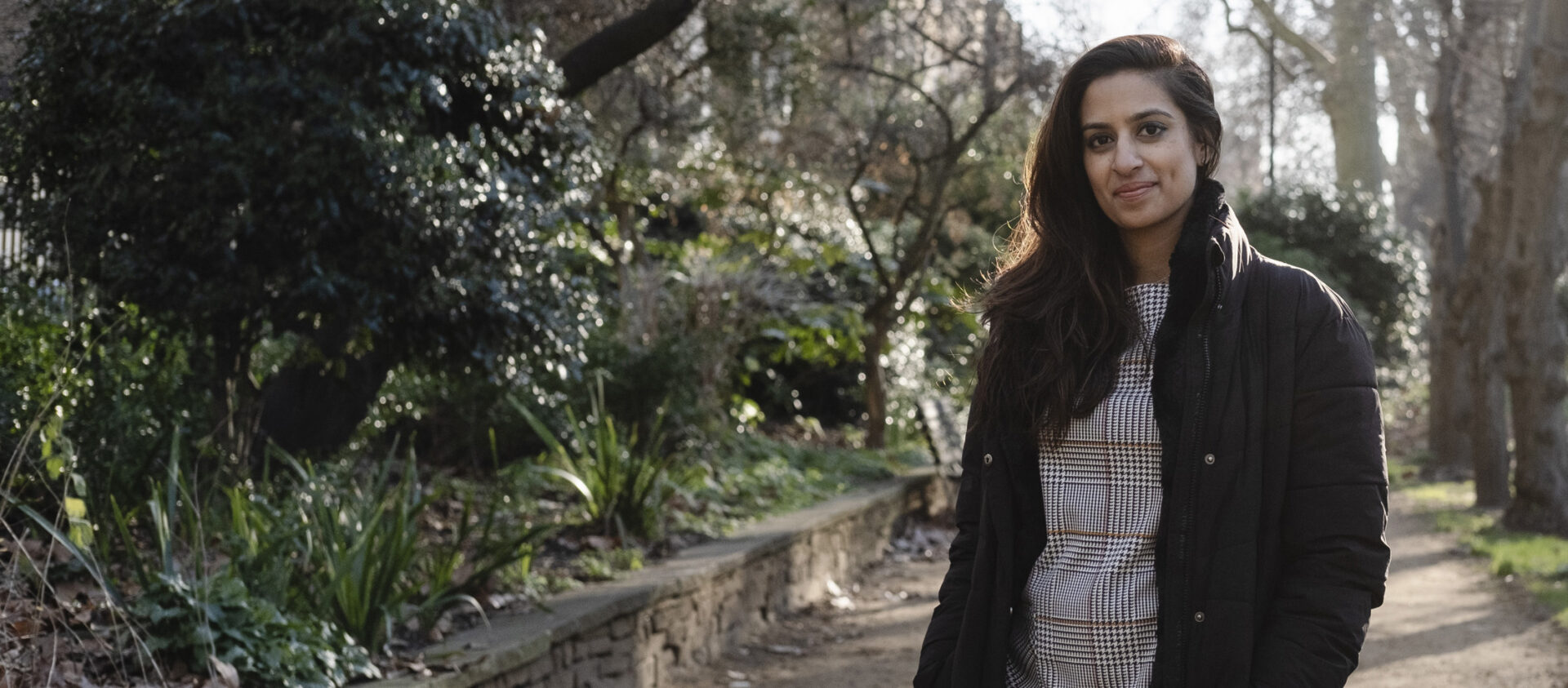
Dr Hina Shahid Q&A: ‘The government needs to listen to junior doctors’
Photography for Hyphen by Ameena Rojee
The GP and chair of the Muslim Doctors Association on the future of the NHS
–
Dr Hina Shahid is a full-time GP in west London and chair of the Muslim Doctors Association. The organisation began in 2004 as a small community group, based in Luton, providing free health checks and workshops for local people. Since then, it has grown, delivering outreach programmes across the UK and responding to humanitarian crises abroad.
The association focuses on health awareness, policy research and advocacy, along with equity, diversity and inclusion in the NHS. Shahid’s own interests lie in chronic disease and elder care, palliative care and mental health. In addition to her work in the UK, she has participated in research and humanitarian projects in Europe, Asia and the Middle East.
Here, she talks about the contribution of the Muslim community to healthcare in the UK and the many challenges faced by the NHS.
This interview has been edited for length and clarity.
Over the past year, there have been numerous healthcare strikes and junior doctors recently took much-publicised action. Will things get better for medical professionals in 2024 or are we looking at more of the same?
Since I qualified in 2008, things have got progressively worse. I think the strike action is reflective of the strength of feeling that something needs to be done. The current climate in the NHS is toxic. I’m seeing colleagues leaving to work in the private sector, transition to non-medical jobs or move abroad. Lots of junior doctors are concerned about what a career in the NHS is going to look like. We are facing an exodus. The NHS is haemorrhaging staff every day and it’s going to get worse unless the government does something to reverse the situation.
With all the challenges the NHS is facing, do you think becoming a doctor is still an attractive profession to people in the Muslim community?
I think it’s still an attractive profession, but perhaps not as attractive as it used to be. I love going to work. However, I recognise that I’m a very small minority. I’m probably seeing up to 50 patients a day as a full-time GP, so we’re working under lots of pressure. Lots of people are still applying for medicine at university, though.
What initiatives is the Muslim Doctors Association working on now?
We recently launched a befriending service which is open to all healthcare professionals, Muslims and non-Muslims. Colleagues can call up one of our volunteers, who are all NHS workers, and talk to them about their issues confidentially. We started the helpline because of the problems some Muslim health professionals said they experienced when speaking up at work about Palestine and Israel. We already knew that some Muslim colleagues faced particular challenges speaking up about workplace discrimination, but it became significantly heightened with the crisis in Gaza, so we created a safe space where people could process their feelings.
How is the Muslim Doctors Association addressing the humanitarian crisis in Gaza?
We’re working in partnership with different organisations, ranging from advocacy and campaigning to supporting fundraising efforts for humanitarian relief. The scale of the crisis is so big that it needs that kind of collaborative approach. We’ve also been promoting other initiatives, such as supporting education efforts in Gaza and the West Bank. This is a humanitarian crisis and it’s not just up to the Muslim community to step up and address it.
How does the MDA support medical professionals under increased pressure during the winter months?
We’re working on a campaign with the NHS to increase access to primary care by highlighting the diverse roles within the healthcare system. We have GPs, but also nurses, pharmacists and paramedics who work alongside us and bring their own skills and experiences. We’re raising awareness of what those colleagues do, so the pressure is not just on GPs to deal with patients. We also have an ongoing partnership with the Islam Channel, where viewers can call in and ask questions about health issues. We are also going to run several pop-up community health clinics across London, which will be our first face-to-face ones since the pandemic.
What needs to be done to ensure that the NHS remains sustainable?
The main focus needs to be on staff retention. Many highly skilled workers do not feel valued at the moment. Many feel no sense of career progression. They’re also experiencing stress, pressure and discrimination. That’s too much for anyone. We need to make workplaces truly inclusive and compassionate. That means NHS leaders and managers have to listen to frontline staff and the government must listen to doctors who are striking.
Topics
Get the Hyphen weekly
Subscribe to Hyphen’s weekly round-up for insightful reportage, commentary and the latest arts and lifestyle coverage, from across the UK and Europe
